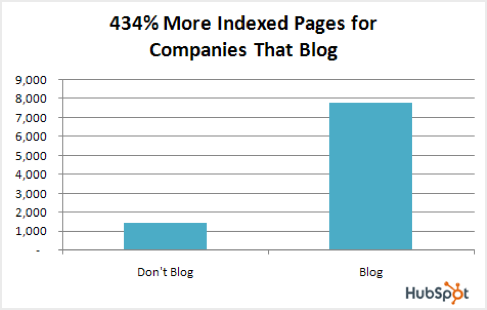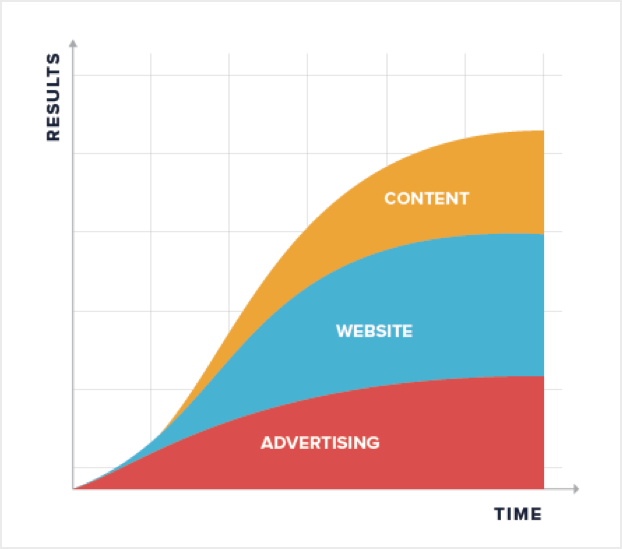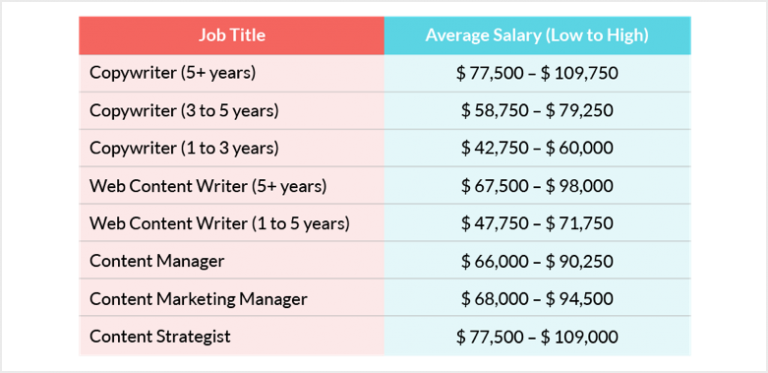
Are you thinking about outsourcing your blogging and content needs but still weighing up the pros and cons?
It’s understandable – blog outsourcing has its fair share of horror stories, from exorbitant invoices to nonexistent communication to lackluster freelancers.
Don’t let these dissuade you from making the decision to outsource, though.
Content marketing has become more and more ubiquitous for online and brick-and-mortar businesses alike. But implementing a content marketing strategy while keeping up with the demands of a competitive publishing schedule is no small feat, especially when you’re faced with limited resources.
It’s no surprise then that nearly half of B2B marketers outsource content creation. With the right platform, blog outsourcing will take your content marketing strategy to the next level.
Looking to make outsourcing a part of your marketing strategy? Download The Content Strategist’s Playbook, Compose.ly’s free content marketing ebook, to learn the best practices for attracting and hiring quality freelancers.
But first, why invest in content marketing?
A study of over 1,500 HubSpot customers showed that companies that invest in a business blog see better marketing results than those that don’t – for instance, they receive 55% more visitors and have 434% more indexed pages.


Images Source: HubSpot
It makes sense. With more content for Google to crawl, the more indexed pages you’ll have. And combined with quality search engine optimization (SEO), a business that’s more readily visible in search engine results pages will likely see increased organic traffic and generate more new leads.
Clearly, content marketing is important. So why are so many people outsourcing it?
Outsourcing content creation lets you focus elsewhere on your business.

Image Source: Pronto Marketing
Whether you’re a webmaster, business owner, or marketing strategist, it’s likely content creation isn’t the only thing on your plate. Unfortunately, that probably also means you don’t have much time to focus on making quality content for your business’s blog.
Content creation, after all, is an extensive process that involves:
- Ideation – Not every piece of content stems from a eureka moment, making ideation critical. Besides brainstorming, this also includes keyword research to understand what your target audience is looking for.
- Writing – This is the actual production stage of content creation – the hours spent wordsmithing a blog post or other piece of content based on your comprehensive research.
- Post-production – As in filmmaking, content creation requires a post-production phase. This entails proofreading, editing, finding accompanying images, and scheduling a completed post for publication. It’s also possible a piece isn’t quite up to standard and requires a significant revision, in which case it must return to the writing stage.
But just going through these steps isn’t enough. Content that resonates with your audience and gets them to convert needs to be high-caliber – and thus requires more thoughtful planning and strategizing.
Of course, if the need for quality content is competing with your other priorities, what do you do?
Outsource your content needs with a reliable platform.
With the right content platform, your business’s blog will no longer be a backburner priority. Outsourcing ensures your publishing schedule will continue unimpeded while you manage the other crucial aspects of your business.
It’s more cost effective to outsource.

Image Source: Content Science Review
The average full-time content writer makes a salary upwards of $42,000 a year – but you can expect to pay as much as $70,000 for a more experienced one. That’s not to mention the additional costs incurred by recruiting and hiring, employee benefits, and administrative overhead, all of which can total thousands of dollars more.
Compare this to hiring a freelance writer for a piece of content priced by the word or hour, or for a fixed rate. Rates range from $0.01 to $1.00 a word, though no industry standard exists across the board. Of course, you’ll sacrifice quality for frugality if you opt for the lowest rates.
Regardless, though, you’ll find that hiring a freelancer is significantly more economical than hiring in-house.
Nervous you’ll run into a freelancer that’ll surprise you with a hefty invoice?
That’s where content platforms come into play.
Content platforms ensure that you receive content that meets your standards for an affordable, predetermined rate. They typically offer pricing by project, so you’ll never be caught off-guard by an over-demanding freelancer. This is also how content platforms make budgeting a piece of cake.
For instance, perhaps you want 2-3 blog posts a week. A platform makes budgeting for this cost straightforward, as you’ll know upfront the price of a blog post. Alternatively, working backward, if you have a set weekly or monthly budget, a platform’s fixed rates help you plan the different types of content you can afford within a given time frame.
Outsourcing lets you access a larger pool of resources.

On top of being more affordable, outsourcing offers more hiring options and flexibility.
While having an in-house writer gives you the benefit of stability, outsourcing means you’ll no longer be limited to hiring only within your city – your potential freelancer could be based anywhere in the world.
Of course, this may also be cause for concern, given our susceptibility to choice overload. In other words, when faced with too many options, we struggle to make more reason-based decisions.
If that’s the case, have no fear. Some content platforms assign freelancers to projects, taking the weight of culling hundreds of writer resumes off businesses.
Moreover, in the event you find yourself unsatisfied with a piece, these platforms generally offer 100% refunds or the ability to swap freelancers.
Compare this to working with an in-house writer who produces a disappointing piece of content. You might have to detail a list of edits and changes, or even fire them,if they’ve been consistently underperforming (the worst-case scenario).
But when you receive lackluster content from a freelancer, you can simply look into working with a different one – and content platforms make that search and replacement process a breeze.
In a similar vein, blog outsourcing through the right content platform means you’re not limited to the top talent in your company’s vicinity. Instead, you have access to all kinds of niche industry experts, regardless of where they’re physically based.
After all, it’s not likely your in-house writer will be knowledgeable on all of the topics you need content for. But with the decision to use freelancers, you don’t need to rely on any single individual.
The right platform values quality over quantity when it comes to freelancers.
Of course, some businesses complain that quality suffers when outsourcing content creation.
With the right platform, this isn’t the case.
Although outsourcing to freelancers requires some finesse (e.g., providing clear instructions), the learning curve isn’t too steep.
Some blog outsourcing best practices include learning the ins and outs of your chosen platform and making your expectations clear. Communication is a two-way street, after all – and without providing your freelance writers with adequate guidance, you’re setting up even the most qualified ones to fail.
That said, specialists hired through the right content platform know their trade and can smoothly translate their expertise into the written word. The naysayers against outsourcing content creation have likely run into low-quality writing services that either do not vet their writers or pay abysmal rates that deter real specialists.
A premium content platform, on the other hand, recognizes the worth of its talented freelancers and compensates them accordingly – all the while maintaining an affordable rate for the businesses that choose to employ them.
Final takeaways
With its ability to generate three times as many leads as paid search advertising, there’s no denying the point-blank effectiveness of content marketing. Of course, there’s only so much you can take on when you’re working with financial and hiring constraints.
That’s where outsourcing comes in.
As the demand for quality and SEO-friendly content rises in the online marketing world, so does the value of outsourcing as an integral part of any successful content marketing strategy. And with the right platform, you, too, can meet the demands of your content production schedule while also balancing your other business needs.
Test the waters with a content platform like Compose.ly – a premier outsourcing solution for businesses in need of quality content. The service matches clients with rigorously vetted writers, all of whom are experts in their respective fields. See for yourself by getting started with a free 14-day trial today.
Guest author: Joyce Chou is a Content Specialist at Compose.ly, a content platform that matches businesses with seasoned freelance writers. She writes for Compose.ly’s blog as well as other publications about digital marketing, personal finance, small businesses, and more. When she’s not writing, you can find her hiking the great outdoors, painting, or trying out different sports and activities.
